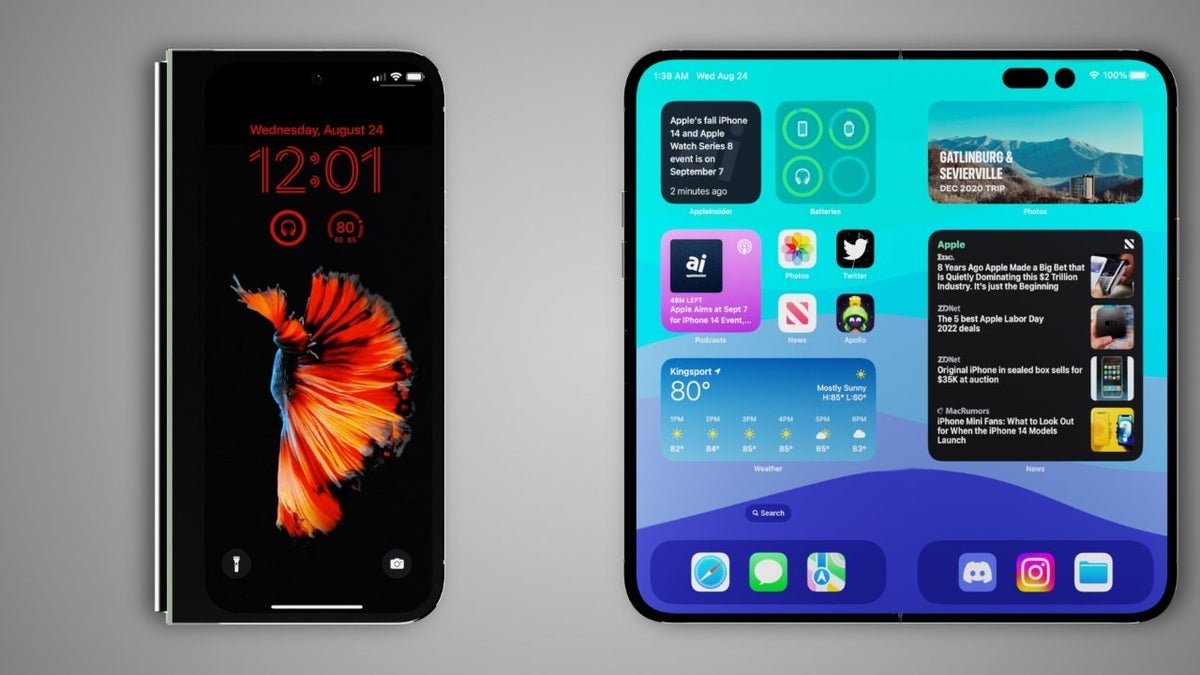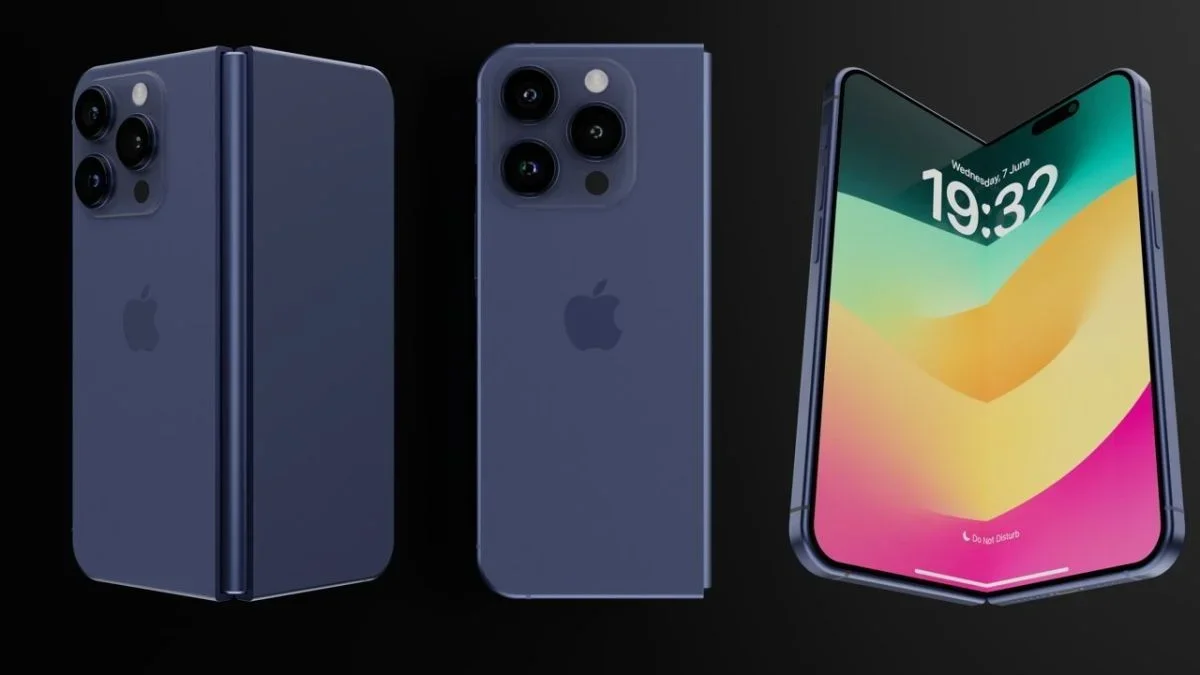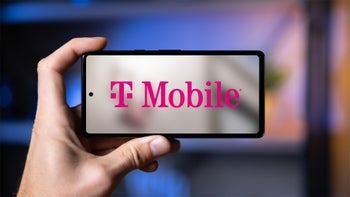JPMorgan sees foldable iPhone quickly taking control of the sector
Investment firm expects the foldable iPhone to lift the foldable sector.

Multinational financial services company JPMorgan believes that the iPhone Fold will be a success. An internal research note that the company sent to its clients was viewed by MacRumors. The note says that the iPhone Fold will be introduced in September 2026 during the event that unveils the iPhone 18 line. The investment house says that despite the debut of the first ultra-thin iPhone (dubbed the iPhone 17 Air), the upcoming iPhone 17 series will not excite the phone-buying public.
JPMorgan tells clients to expect the foldable iPhone to be unveiled in September 2026
As a result, consumers' attention will quickly turn to the 2026 iPhone line, which JPMorgan says will include the first foldable iPhone dubbed the iPhone Fold. The report to JPMorgan's clients says that the book-style foldable will be priced at $1,999 and sales will be in the teens of millions by 2027. The foldable iPhone isn't expected to really take off until 2028, according to JPMorgan's analysts. That's when 45 million iPhone Folds are expected to be sold. Considering that the Bill of Materials for the device is rumored to be $759, Apple could be in a good position to coin some nice profits if the foldable iPhone is a success.

JPMorgan sees Apple releasing a $1,999 foldable iPhone in 2026. | Image credit-Unknown
Apple's entry into the foldable market will give that niche segment of the smartphone industry a shot in the arm, as many expected. This year, 19.8 million foldables are expected to be sold globally. The introduction of the foldable iPhone will not only take foldable devices into the mainstream, but having a foldable iPhone in the marketplace will result in a huge jump in foldable units sold, and the amount of revenue generated by the sector should soar.
Will Apple become the global leader in foldables?
Yes. It is such a niche market, Apple will take over.
34.65%
No. Samsung or Huawei will be the leader.
60.4%
No. A non-Huawei Chinese firm innovates to the top spot.
4.95%
Yes, the iPhone name still means a lot in the smartphone industry. But beyond that, Apple is looking to improve the appeal of foldable phones by removing some of the major issues that keep consumers away from buying such a device. The number one reason why consumers don't buy foldables is the pricing, and this is one issue that I don't think Apple is so quick to fix. The second problem is the tendency of foldable displays to have a crease show up on the internal display. This is a problem that foldable manufacturers have been struggling to eliminate for a long time.
Apple reportedly will ship a foldable with a crease-free display, or at the least, a crease that will not be so easily noticeable. The inner screen is expected to weigh in at 7.8 inches and will feature a sturdy, long-lasting hinge using "Liquid Metal." The external display is expected to weigh in at 5.5 inches. The iPhone Fold will sport a thin chassis and a titanium frame. Touch ID is expected to make its long-awaited return, replacing Face ID on the foldable iPhone.
Apple learned about foldables by reverse engineering competitors' models
Apple has studied the foldable market for a long time. This is how the company operates. The late Steve Jobs didn't wake up one morning with the iPhone, its specs, design, and features all done. It was a multi-year project that started in 2004, three years before that glorious day when Jobs held aloft the device that would change the world.
With the foldable iPhone, Apple did the same thing. It studied the competition, examined their weaknesses, and figured out where Apple could do things better. The crease is supposedly an example of how this works. Earlier in the process, Apple was said to have held back on developing a foldable iPhone because it was concerned that such a device could not be durable. Then, while testing a prototype foldable iPhone in 2024, the device, using a display sourced from Samsung, fell apart.
Obviously, Apple is well past this point. It reverse-engineered competitors' models and figured out how to make a better mousetrap. It's the Apple way. And if JPMorgan is correct, sooner than you'd expect, Apple will be the leader in foldables worldwide, which JPMorgan calls a $65 billion opportunity for the company.
Follow us on Google News














Things that are NOT allowed:
To help keep our community safe and free from spam, we apply temporary limits to newly created accounts: